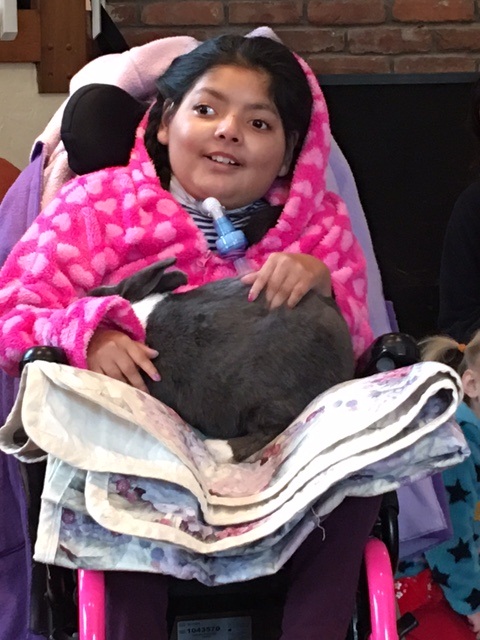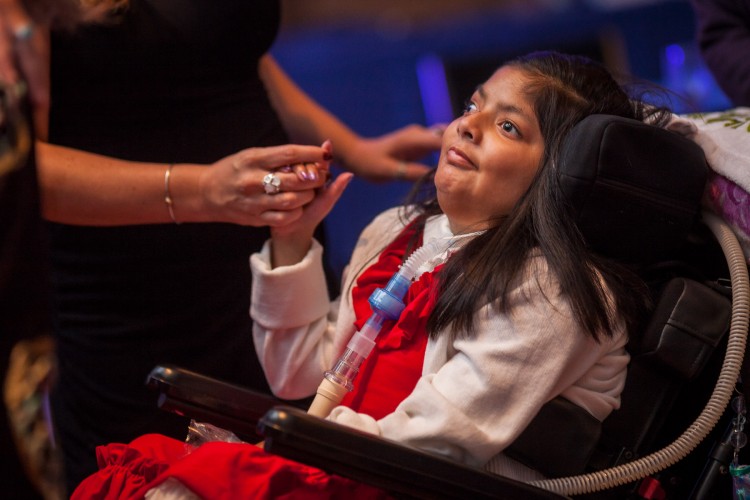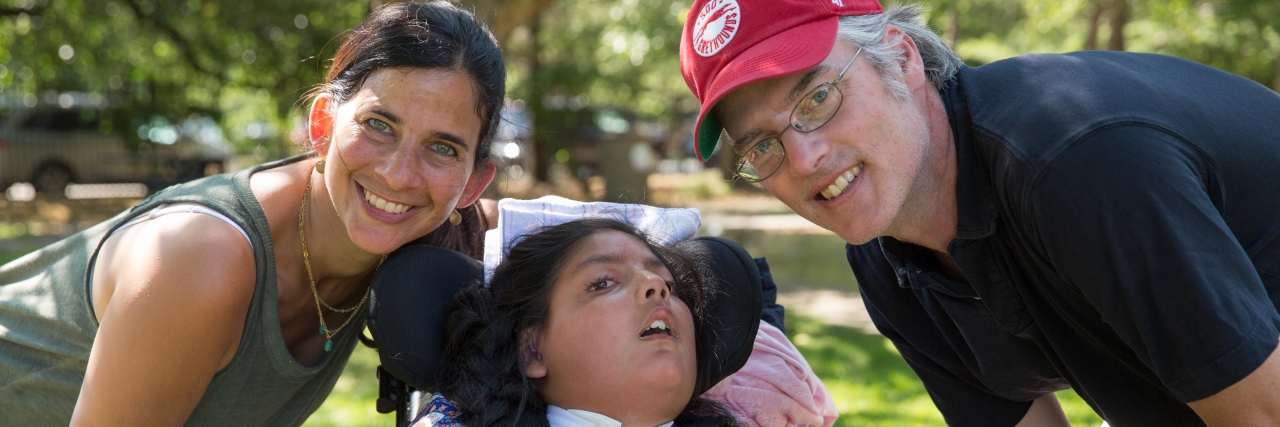The 'Rules of Engagement' When Asking About Someone's Disability

Years ago, before I had kids of my own, I was seated at a restaurant next to a mom and her son with special needs. The boy started to have a meltdown, screaming and physically lashing out at his mother. The mom steered her son outside, where he continued to thrash. Some of us in the restaurant stared; others looked away. Yet none of us went outside and asked the mom if we could help or brought her the jackets she’d left inside. I was in the “looking away” camp; I thought the polite thing to do was to pretend I didn’t notice.
And then there was the time I was in an elevator with my son, back before my own daughter was in a wheelchair, squeezed next to a mom and her blind son in a wheelchair. My son looked at the boy and asked, “What’s wrong with him?” I was mortified. “I’m so sorry,” I quickly said, apologizing on his behalf. She looked at my son and explained that her son had parts of his body that didn’t work like ours. Then she looked at me and said, “I’d much rather have someone ask me about him instead of just staring. But kids are the only ones who will do that.”
So which is it? Is it better to pretend not to notice anything is different, or should we come right out and ask? What do we really want?
My daughter Dalia is a beautiful girl, but she looks decidedly different from other people. For starters, there’s the wheelchair, the leg braces and the hearing aids. And it’s impossible not to notice that she has a large tube that comes out of her neck and is attached to a ventilator.
Dalia lived nine years fairly “normally” until her world was turned upside down after her tracheostomy. I wonder sometimes if it’s different for people who were born with severe medical complexity. Are they used to the stares and the whispers? Is it less painful? I doubt it…but I suppose they probably have more developed coping skills.
I’m not sitting in Dalia’s chair, but I’m about as close as you can get, so you’d think by now I’d have figured out which is better — the staring or the turning away.
Honestly? They both burn.
So what’s the alternative?
Dalia is aware of everything going on around her. That’s not obvious when you meet her, so I’m always impressed by people who address her normally – the ones who say hello to her directly or compliment her on her sparkly boots. And I’m grateful for those who look at me and smile instead of pretending not to see us. And then there are those who go a step further – the people who make sure to hold the door before they see me try to push it open with my foot as I steer the wheelchair, the ones who offer to help me carry a heavy load, when they see me precariously balancing the groceries in one hand and steering with the other.
But I know that’s a lot to expect.
And quite honestly, I don’t know that I would have fallen into that camp before I lived here. The evidence clearly points otherwise.
When I was in college, a much cooler, older guy brought his visiting sister to a basketball game. He introduced us, and told me upfront that she was deaf. I’d never met anybody who couldn’t hear before and it made me extremely nervous. Frankly, the fact that he was older and cooler was enough to make me nervous even without the deaf sister. So I asked what is probably the dumbest thing I’ve ever asked in my entire life: “Does she read braille?”
People who are different make us uncomfortable. No matter how open-minded and inclusive we like to think we are, we can’t help but stumble when someone’s diversity throws us off balance. But now I know that we can be curious without being rude and engage without being invasive. It’s not only that asking is usually better than staring, it’s also a way for people to learn about Dalia’s rare form of mitochondrial disease, myoclonus epilepsy with ragged-red fibers syndrome (MERFF). I welcome the chance to spread the word.

Not that I’ll always feel like talking about it, or even answer as graciously as I should. One time I met someone at a party with whom I quickly bonded over mutual admiration for each other’s dresses. Soon we were talking about our children, and she was looking to commiserate about her crazy schedule. She was trying to juggle baseball and cheerleading and lacrosse, or some such dilemma. Before long, it came out that Dalia was in a wheelchair, and she politely asked why. I gave her as much of an explanation as I felt like going into it, and tried to change the subject. She continued pushing, asking some very invasive questions. I pretended I had to go to the bathroom.
If it seems there’s no easy way to win, that engaging around all this is a crapshoot, you’re right.
But at the end of the day, I always appreciate the attempt.
You might get it wrong – need I remind you about my braille question? But you’ll get the “A” for effort because I know what a delicate dance it all is.
Once, when we’d been in the ICU with Dalia for about three months, I took a break and went to my friend Lara’s in-home boutique for some shopping therapy. After about an hour of trying on clothes, we collapsed on the floor, surrounded by belts and purses and totally impractical shoes.
She looked at me with eyes full of love and said, “your life suuuuucks.”
I was grateful — grateful for the escape and the glass of wine she’d had waiting for me when I’d arrived and the hour of pretending life was “normal.” But mostly, I was grateful for the understanding that there was really nothing else to say at that point.
So maybe what we want is simply the recognition that what we’re going through is very, very hard.

